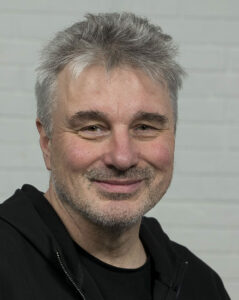Schlagworte:
Sachgebiete:
Projektart:
Dauer:
Institut:
The project focuses on the emergence of service-learning (SL) and digital empowerment (DE) within the context of Europe from a range of pioneers that have been experimenting with, practicing, researching, and refining the use of these teaching and learning approaches towards mainstreaming in higher education in Europe. It brings together students and academics from a range of European universities that seek to draw on existing practice, share knowledge and develop best practices in and with the community whereby all become teaching resources, problem solvers, and partners. Europe is one of the last international regions to consolidate and articulate the benefits and challenges of SL from a regional perspective. Therefore, a virtual pan-European hub will be created to grow knowledge, enhance practice and articulate the European commitment to democracy and society through SL and DE within European universities. The pan-European hub will facilitate the exchange, flow and co-creation of SL and DE knowledge and act as a dissemination point for innovative tools, learning and teaching materials, attracting more stakeholders to contribute to the growth of the content base. The overall purpose of SL is to instill a sense of civic engagement and responsibility in students and to motivate them to make the positive social change. In practice, the nature of SL is quite complex and subject to many interpretations. Therefore, the project answers to a growing need to promote inter-connected higher education systems, stimulate innovative learning and teaching practices, digital empowerment, inclusion and diversity, and to promote active citizenship, young people’s sense of initiative and social entrepreneurship through SL. Thus, from this perspective, this project is both unique and innovative. The goals of the SLIDE project are to: (1) collectively understand and promote SL as a pedagogical approach that embeds and develops civic engagement within higher education, students, staff, and the wider community in Europe, (2) equip students with digital capabilities and skills necessary for the use of technology in creative, critical, competent and inclusive ways (with a special attention on promoting gender equality, addressing differences in relation to the access and use of digital learning resources by people with disabilities, and/or learning difficulties, people of a migrant background, rural populations, i.e. underprivileged and underrepresented groups who are usually positively affected by service-learning), (3) increase the capacity and readiness of HEI teachers to manage an effective shift towards digital education, to encourage the purposeful use of digital technologies for teaching, learning, assessment and engagement, as well as the development of digital pedagogy and expertise in the use of digital tools for teachers, including accessible and assistive technologies and the creation and innovative use of digital education content, (4) stimulate the development of students’ digital skills and competences through SL activities that address human, social, and environmental needs from the perspective of social justice, integrating community service with the curriculum to enrich learning in any university degree, teach civic responsibility, and strengthen communities through action and critical reflection, (5) create a pan-European hub that will make a significant contribution to the dissemination of knowledge on SL and DE in Europe and enable a culture of promotion and public articulation of university-community partnership through SL. This project should serve as a catalysator of the shifting role of teachers, trainers and educational leaders in the digital transition affecting education and training as well as their training needs, including digital and leadership skills, required in an emerging society of permanent and quick technological change.
Kontaktperson

,
Arbeitsbereich

| Cookie | Duration | Description |
|---|---|---|
| cookielawinfo-checkbox-analytics | 11 months | This cookie is set by GDPR Cookie Consent plugin. The cookie is used to store the user consent for the cookies in the category "Analytics". |
| cookielawinfo-checkbox-functional | 11 months | The cookie is set by GDPR cookie consent to record the user consent for the cookies in the category "Functional". |
| cookielawinfo-checkbox-necessary | 11 months | This cookie is set by GDPR Cookie Consent plugin. The cookies is used to store the user consent for the cookies in the category "Necessary". |
| cookielawinfo-checkbox-others | 11 months | This cookie is set by GDPR Cookie Consent plugin. The cookie is used to store the user consent for the cookies in the category "Other. |
| cookielawinfo-checkbox-performance | 11 months | This cookie is set by GDPR Cookie Consent plugin. The cookie is used to store the user consent for the cookies in the category "Performance". |
| viewed_cookie_policy | 11 months | The cookie is set by the GDPR Cookie Consent plugin and is used to store whether or not user has consented to the use of cookies. It does not store any personal data. |
Institute